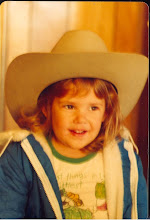Today’s lines come from Ted Dekker’s Saint.
“Good. The winner will be freed and given a knife. The next one to succeed will be armed with a handgun and will hunt the winner until one of you is either killed or incapacitated. The third will be left in the crate an additional five minutes and then taken to the infirmary.”
Carl dropped the binoculars on the sandbag and picked up his rifle.
And my most recent lines are:
“Uh, sure. Every puzzle – every code – has a key, or system that it’s built on. Take the alphabet for example. If you assign each letter a number, A is one, B is two, C is three and so on, you have a very simple code.”
He still looked confused. “Really?”
“Yes. If we continued the sequence and replace the letters of your name with numbers, it would be 11-5-12-12-5-14.”
“If that’s all it is, then why does your software need so long to decode it?”
She smiled. “Like I said, that was a very simple code, and computers think in only two numbers, zero and one. The software’s trying billions of patterns filled with zeros and ones to find the one that fits and unlocks the encryption.”
“The key.” He smiled and it softened his intensity. “Okay, well let me know when you have something for me.”
“You got it.” She watched him leave, appreciating the view, and got back to work.
I know it is more than two lines, but I don’t know if this is how I want to end my chapter or not. The code she talks about HAS to be in there, it is important later, but something in here is really bothering me…
Any thoughts?
Feedback Request
3 days ago





5 comments:
Hmmm... I'm not sure I can help but I'm interested in what kind of book you're writing?
I guess the best way to describe it would be to call it a romantic mystery...
Crystal -
It's hard to tell out of context, but maybe the issue is that the code she is giving him is a bit too simple? Or maybe it's that most people don't consider the alphabet a puzzle, so try going the opposite way...
"Uh, sure. Every puzzle – every code – has a key, or system that it’s built on. Let's say you found the numbers 11-5-12-12-5-14 somewhere. What would you think?"
He looked confused. “Umm?”
"Well, the alphabet is a very simple code. If you assign each letter a number, A is one, B is two, C is three and so on, the numbers I just read you would spell out your name."
Then go on from there...?
Crystal, I think Laura's given you a prime example. I'm not much help with puzzles, but this bit looks interesting.
Since you and Bindu were so darned curious, I stuck in the following sentence into the comments. Enjoy.
Post a Comment